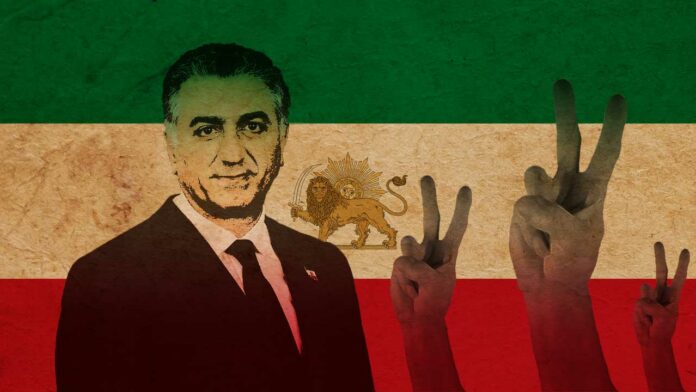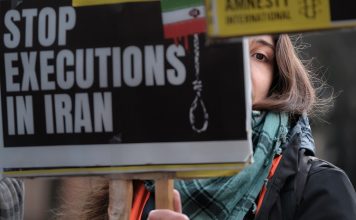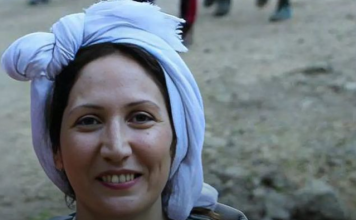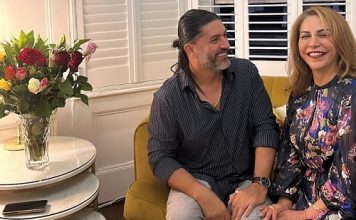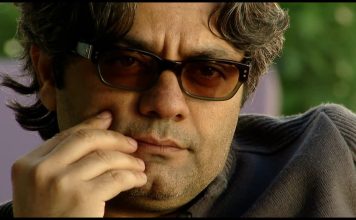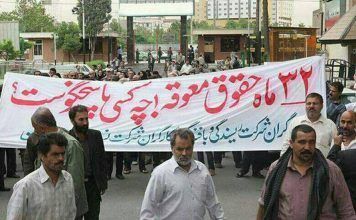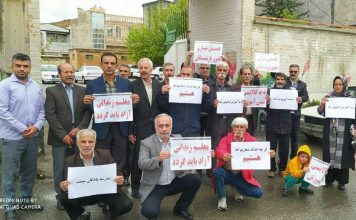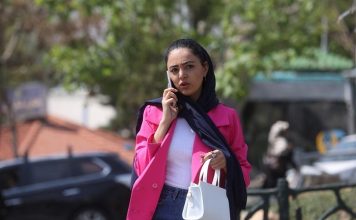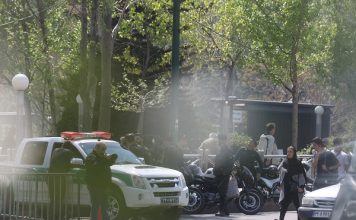By Kayhan Life Staff
During a virtual meeting with the Social Democracy Society of Iran on July 15, Crown Prince Reza Pahlavi voiced his views on freedom movements in the country, outlining positions he had set out in his “New Covenant” speech, June 3 press conference and other statements.
The prince unveiled his “New Covenant” on Sept. 28, 2020. It rejects “individual rule and centralized power in today’s world” and promotes “collective wisdom, public involvement, and individual responsibility.”
Early last month, the prince held a press conference on recent developments in Iran, discussing support for widespread protests against the Islamic Republic and how the international community had reacted to events.
The Social Democracy Society of Iran is a group of political activists with four decades of social and political experience. It is mainly composed of former members of leftist groups who “ultimately concluded that social democracy ‘popular democracy’ would solve a big segment of the political, economic, and cultural problems facing Iranian society.” The group argues that a social democratic system can be established in Iran “after removing the Islamic Republic, which is the main obstacle to freedom and prosperity.”
Speaking about the events of the last four decades and ongoing dialogue with political movements inside Iran abroad, Reza Pahlavi said: “We have heard many theories from various political movements about a secular democracy as an alternative to a theocratic rule.”
“We must first decide on a governing system to replace the Islamic Republic’s rule for a democratic future,” He argued. “Should the central discussion then focus on accepting the Majlis [parliament, a constituent assembly] as the ultimate decision-maker, where people can determine their destinies through the help of their representatives, given that various political movements have differing views on the type of governing system and power-sharing? Ballot boxes and free elections will ultimately enable the Majlis to be the decision-maker.”
[aesop_image img=”https://kayhanlife.com/wp-content/uploads/2019/01/2018-01-03T155557Z_1521067218_RC1E1D2CA7A0_RTRMADP_3_IRAN-RALLIES-MONARCHY-e1547027942734.jpg” panorama=”off” credit=”FILE PHOTO: Reza Pahlavi. REUTERS./” align=”center” lightbox=”on” captionsrc=”custom” captionposition=”left” revealfx=”off” overlay_revealfx=”off”]
“The main question is, how to divide the work during the transition period?” the prince noted. “How and in what shape will the transition be implemented? It would be very challenging to achieve this without unity and coordinated efforts. I do not believe any of us can claim to be the people’s voice, represent them, and decide for them. We must reach a point when people’s representatives can decide — this is a crucial issue.”
“Society is very concerned about an alternative [governing system,]” he explained. “We are clear what we do not want, but the critical issue is what we aspire to achieve, which the alternative can depend on: a tangible and not an ambiguous source of support which ultimately enables people to decide.”
Asked about the role of political parties, organizations and trade unions, the prince said: “The legitimacy and credibility of any political action rely on its ability to serve the people and be accepted by them. My only criterion for measuring any step’s success is its impact on society. I am not highlighting an unusual issue here. It is the same all over the world.”
“Political groups and trade unions can be the crucial tools and levers for any kind of change,” he argued. “My mission has been to tell the people they are the ultimate authority and decision-makers. The rest of us serve the people, which does not mean I want to bypass any group or organization. I have always promoted efforts to pave the way for political parties to compete in elections to form a government. Otherwise, everything else is empty talks.”
“You can have the most robust constitution, the best form of government, an ideal state and hold a referendum, enabling people to decide, but how will they influence the country’s future and political process?” the prince asked. “It will have to be through political parties or other institutions.”
“I extended my hand to the staunchest opponents of my father’s ruling system and worked with them long before other political movements did,” the prince noted. “If I had any other motives, I would have said people did not matter and promoted the jungle’s law where the bully rules. I have always said we must safeguard people’s rights.”
“We must protect people’s freedom of speech and expression,” he argued. “I fight for people’s freedom, so they can freely oppose me. Opposing someone does not mean you are their enemy. Anyone who does not think like me is not my enemy necessarily. That is my view of political and social pluralism.”
Asked about his comments during the June 3 press conference in which he called on “tribes” and “ethnic groups” to “unite and lend their support to the courageous people who pour into the streets,” Prince Reza Pahlavi said: “Young people who contact us sometimes identify themselves by their tribes.”
“For instance, they may identify themselves by saying they are Bakhtiari or Lur. These are not my terms but theirs, used during dialogues and discussions,” the prince explained. “I see Iran as a multicultural, multiethnic, multilanguage, and multireligious nation.”
“We must highlight the real issue instead of getting bogged down by semantics; will their rights and demands be respected?” he argued. “Are we sensitive to their needs? Do we acknowledge and understand them, or would some people like to ignore them completely? Our main issue is understanding each other, which has always been my mission. I always tell everyone that we are not in a position to give or take anything. We must reach a stage where we can defer to a source of authority, namely a constituent assembly, and not ourselves. But we need to create a mechanism to implement this; otherwise, we cannot take from or give each other anything.”
Asked about the people who claim to be his supporters but oppose his views, the prince said: “If I were to ask you to describe someone who supports you, the logical answer would be a person who shares your views. Some people may claim to support a person, but the question is whether that is reflected in their actions? If it is not, then either their claim is false, or they have other motives.”
“We must stop any movements that lead us to neofascism or unacceptable trends,” he warned. “We must confront such developments and stop them in their tracks. I believe the silent majority thinks like that. The extremist groups usually have louder voices, but it does not mean that their words have a greater impact. The only way to sideline them is by making our voice heard.”

